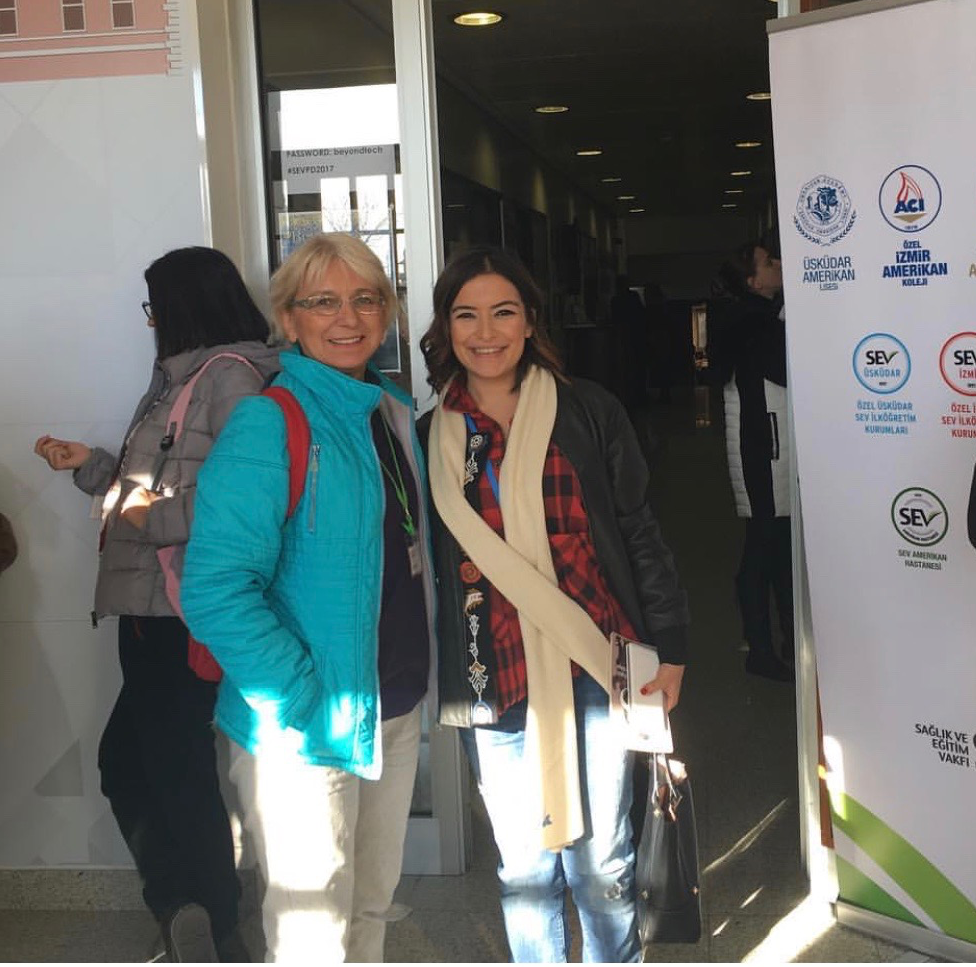BEYOND TECHNOLOGY: THE FUTURE OF LEARNING

BEYOND TECHNOLOGY: THE FUTURE OF LEARNING
A Review by Meral Güçeri and Eda Saraç
Üsküdar American Academy organised a professional development event entitled Beyond Technology: The Future of Learning on 9th December 2017. Cristobal Cobo, Director of the Center for Research, did his plenary talk, Tech Tools: Reframing Instructional Design to Enhance Learning.
There was a variety of sessions discussing the role of technology in education. The session entitled digital game practices in class focused on iPad applications such as Chatterpix and Charades. Another concurrent session was about how technology enables us to swim with sharks, visit outer space, walk through a museum without leaving the classroom using VR glasses with Google Expeditions.
Choose Your-Own Adventure was the slogan used for project based learning which claimed that technology helps students manage the complexity of working on diverse deliverables.
Collaborative classroom tasks and activities that foster active learning and higher order thinking skills were the focus. The presenters talked about how learners came together during the semester and created an e-learning blog.
The Using Super Duper Story Maker session explored the application that emphasizes how students practice their language and grammar skills while developing their thought processes for writing. STEAM has been a common practice in the US and the presenter claimed that STEAM removes limitations and replaces them with wonder, critique, inquiry and innovation. Hence, education becomes risk-taking, engaging in experiential learning, problem solving and collaboration. That is how it becomes a creative process.
The impact of Learning Spaces was highlighted saying that they should be designed with care and attention so that entrepreneurship, creativity, problem solving innovation and collaboration is encouraged.
Cristobal Cobo, British Council Research Fellow, argued that learning happens anywhere and everywhere. However, he indicated that the future of learning will address those who are keen on making learning a 7/24 and 360 degrees activity which means taking all opportunities available to learn. The world is overloaded with information but individuals are encouraged to develop certain skills that are beyond formal education settings such as critical thinking, adaptability, resilience, collaboration, agency, and global citizenship. Cobo did not address technology as a driver of change, instead, he explored how to expand learning opportunities beyond classroom through networks of collaboration. He mentioned maker spaces, incubators, living labs and circles of learning which bring new ways of understanding the ecosystem of learning which involves new ways of knowing, learning, teaching and evaluation.
All in all, this professional development event at Uskudar American Academy was inspiring and thought provoking.
